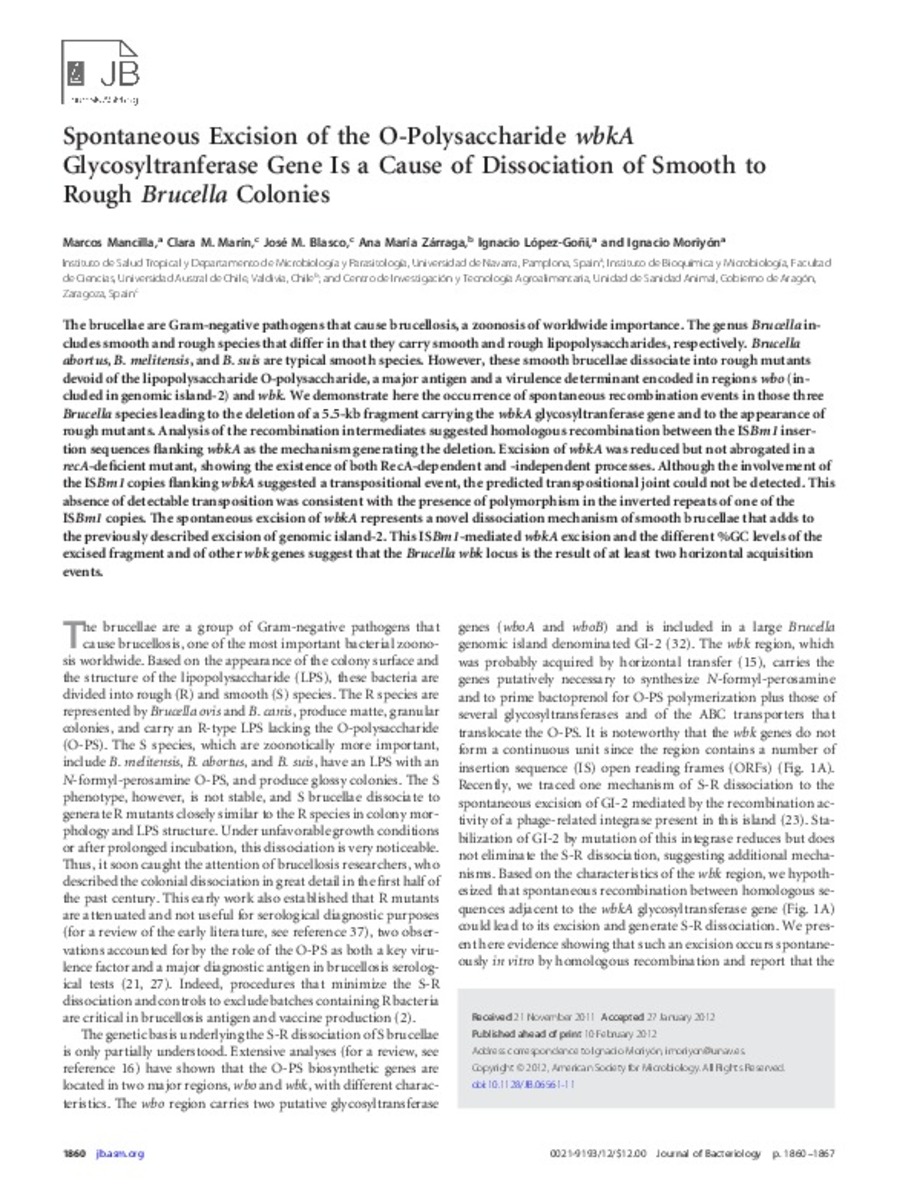Spontaneous excision of the O-polysaccharide wbkA glycosyltranferase gene is a cause of dissociation of smooth to rough Brucella colonies
Keywords:
Bacterial Proteins metabolism
Brucella enzymology
Gene Deletion
Gene Expression Regulation
Bacterial physiology
Glycosyltransferases metabolism
Publisher:
American Society for Microbiology
Citation:
Mancilla M, Marin CM, Blasco JM, Zarraga AM, Lopez-Goni I, Moriyon I. Spontaneous excision of the O-polysaccharide wbkA glycosyltranferase gene is a cause of dissociation of smooth to rough Brucella colonies. J Bacteriol 2012 Apr;194(8):1860-1867.
Statistics and impact
0 citas en

0 citas en

Items in Dadun are protected by copyright, with all rights reserved, unless otherwise indicated.







